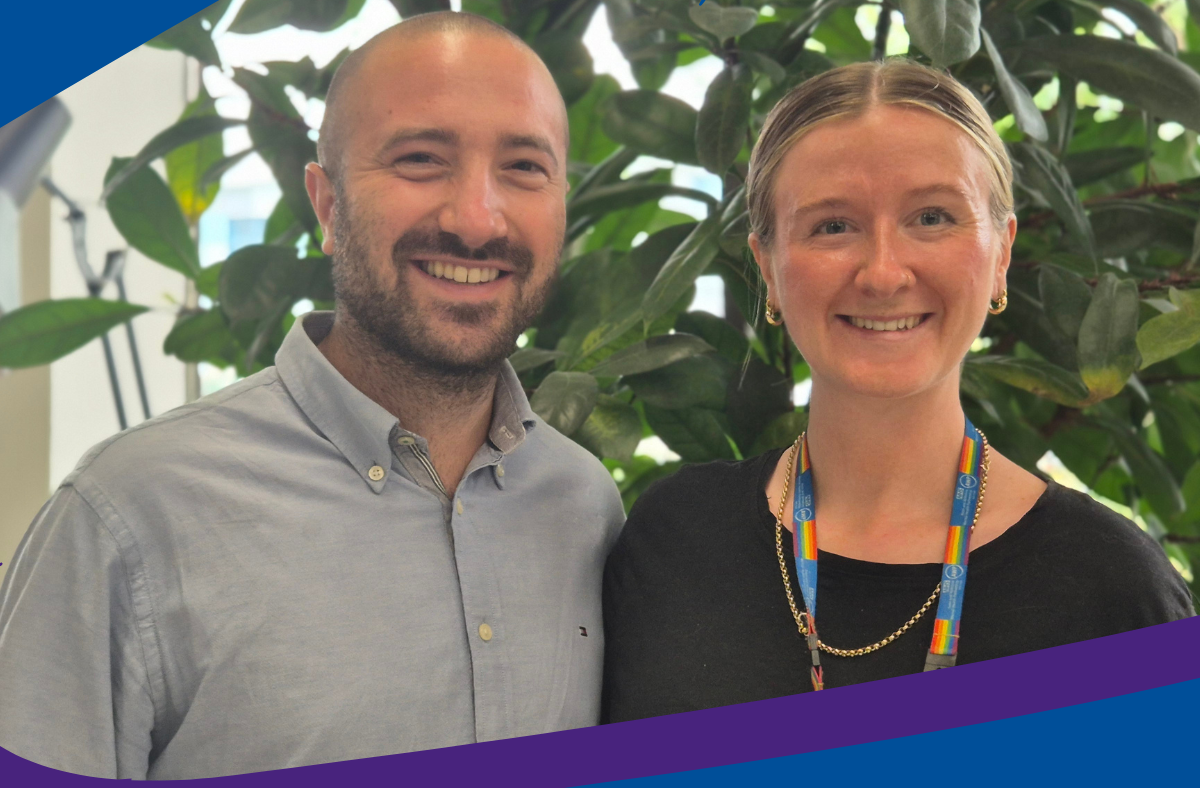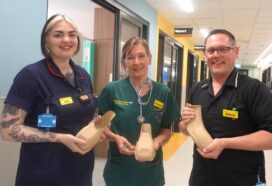
A new real-world evaluation, commissioned by Health Innovation West of England and conducted by Unity Insights, has revealed the positive impact of Clera, a web-based messaging application, on communication between healthcare staff, patients, and their families.
The small-scale pilot, conducted in the Infectious Disease Unit at North Bristol NHS Trust (NBT), demonstrated Clera’s potential to foster greater transparency and trust within acute care settings.
Hospital ward staff frequently dedicate a substantial portion of their time – approximately 14% – to providing updates on patient care to families and next of kin. Despite these efforts, just 8% of families report being “very happy” with the level of updates they receive. This often leads to dissatisfaction, communication gaps, and challenges for patients in recalling vital medical information.
Developed by NHS doctors Jonathan Abeles and Alice Appleton, Clera has been designed to address these issues by enabling healthcare professionals to securely message patients and their families, aiming to improve patient involvement, ensure more equitable communication, and optimise staff time.
Impact on patients and families
The evaluation employed a mixed-methods approach, analysing quantitative patient notes and app data, as well as qualitative survey responses from patients and families, before and after Clera’s implementation over a two-week period in February 2025. The headline results were:
- Improved information flow
70% of family members felt well-informed about patient care during the pilot, a statistically significant increase from 40% before the pilot. Similarly, 58% of patients felt well-informed, up from 52%. Patients also noted that written updates gave them time to process the information. - Enhanced understanding of care plans
75% of patients and 67% of family members knew their daily care plan, significantly higher than the pre-Clera figures of 56% and 28% respectively. - Enabling more equitable access to information
Clera contributed to reducing disparities in access to care updates, showing positive impacts across various demographics, including age, Index of Multiple Deprivation (IMD), distance from the hospital, disability, and employment status of family members. - Increased frequency of updates
Clera enabled staff to provide more frequent communication with the average number of updates provided to patients and families rising significantly from 0.45 to 2.36 updates per day during the pilot. - Positive user feedback
Many families described Clera as “game-changing” particularly for those who found it difficult to contact the ward due to work schedules, providing peace of mind and reassurance.
Impact on healthcare staff
Clera also demonstrated substantial benefits for healthcare professionals:
- High value and ease of integration
92% of staff valued Clera’s impact on their work, and 86% reported that they could easily integrate Clera into their existing routines, attributing this to the app’s intuitiveness and efficiency. - Improved efficiency
Staff spent half as much time providing updates per contact following implementation of Clera (5.1 minutes) compared to the baseline (10 minutes), indicating a notable efficiency gain for the task itself. - Increased updates
During the pilot, staff were enabled to deliver more updates overall. 91% of staff spent time providing updates to patients and relatives, a significant increase from 27% before Clera was introduced.
Dr Ed Moran, Consultant in Infectious Diseases at North Bristol NHS Trust, said: “The pilot of Clera at NBT has been incredibly insightful. We’ve seen first-hand how this innovative application can genuinely improve communication between our dedicated staff and the patients and families we serve. The feedback from relatives of those patients who are frail or struggle to retain the information they are given is particularly powerful, highlighting how Clera brought them peace of mind and fostered greater transparency. This pilot has laid a strong foundation for how digital tools can enhance patient care and trust within our hospital environment.”
Mairead Murphy, Associate Director of Evaluation and Insight at Health Innovation West of England, added: “As a Health Innovation Network, our mission is to identify and support innovations that genuinely transform health and care. These early findings are incredibly promising; we are delighted to see the impact Clera has had in addressing a long-standing challenge in hospital communication, particularly its ability to ensure more equitable access to vital updates for diverse patient groups.
“We will continue to work closely with Clera Healthcare to support their further development, including exploring enhanced usability and integration with existing hospital systems. Evaluating the app’s benefits on a larger scale will be key to pave the way for wider adoption.”
Dr Alice Appleton, Co-Founder and Director of Clera, said: “Clera was born from our daily frustrations on the wards – families lacked updates, and staff lacked time. It’s a project shaped by our experiences as doctors, but having the idea was the easy part. Finally seeing it being used by our colleagues on the wards we used to work on was a huge milestone for us.
“Hearing even just one piece of feedback from a family member who felt more connected and reassured has given us a renewed sense of purpose and shown us just how much impact we can have when clinicians and tech come together to solve real problems. Our pilot shows that digital tools, when developed by the clinicians who use them, can be used to bring patients and families into the conversation, rather than push them further out.
“We owe a huge thank you to NBT, Health Innovation West of England and Unity Insights, who brought everything together into a pilot and evaluation that will help guide Clera’s development and demonstrate its impact.”
While minor usability challenges were noted during the pilot, this was outweighed by the platform’s overall positive effects on efficiency and satisfaction.
The evaluation provides crucial feedback for Clera Healthcare’s product development, recommending enhancements such as comprehensive staff training, streamlined patient consent processes, and improved messaging system features, including integration with existing hospital systems such as Careflow. Recommendations also include improving family communication by offering tailored updates and regular “no change” notifications.
Health Innovation West of England’s innovator support team will continue to collaborate with Clera Healthcare on their innovation journey, exploring options for wider adoption and spread once its benefits are demonstrated on a broader scale.
Posted on August 5, 2025
News you may like

Assessing the economic and environmental implications of the UniWee™ device
Developed by nurses in the Emergency Department at Great Western Hospitals (GWH) NHS Foundation Trust, UniWee™ is an innovative device that has been commercialised in collaboration with Omni-Pac to provide female patients who are unable to walk with a dignified, pain-free way to urinate whilst sitting or lying down. As part of our support to…
Read more
Health Innovation Network publishes National Patient Safety Improvement Programmes 2024 -25 report
Last month, the Health Innovation Network published the National Patient Safety Improvement Programmes report for 2024-25, highlighting its impact and progress over the course of the year. The Programme supports the NHS Patient Safety Strategy’s aim for the NHS to continuously improve patient safety, and its ambition to save 1,000 extra lives and £100 million…
Read more
Launch of seven new innovation projects to drive earlier and faster cancer diagnosis
In partnership with the NHS Somerset, Wiltshire, Avon and Gloucestershire (SWAG) Cancer Alliance, we are launching seven pioneering innovation projects aimed at transforming cancer diagnosis across the region. Funded by the NHS SWAG Cancer Alliance as part of our joint Cancer Innovation Programme, we selected these projects through a competitive open call and are designed…
Read more

